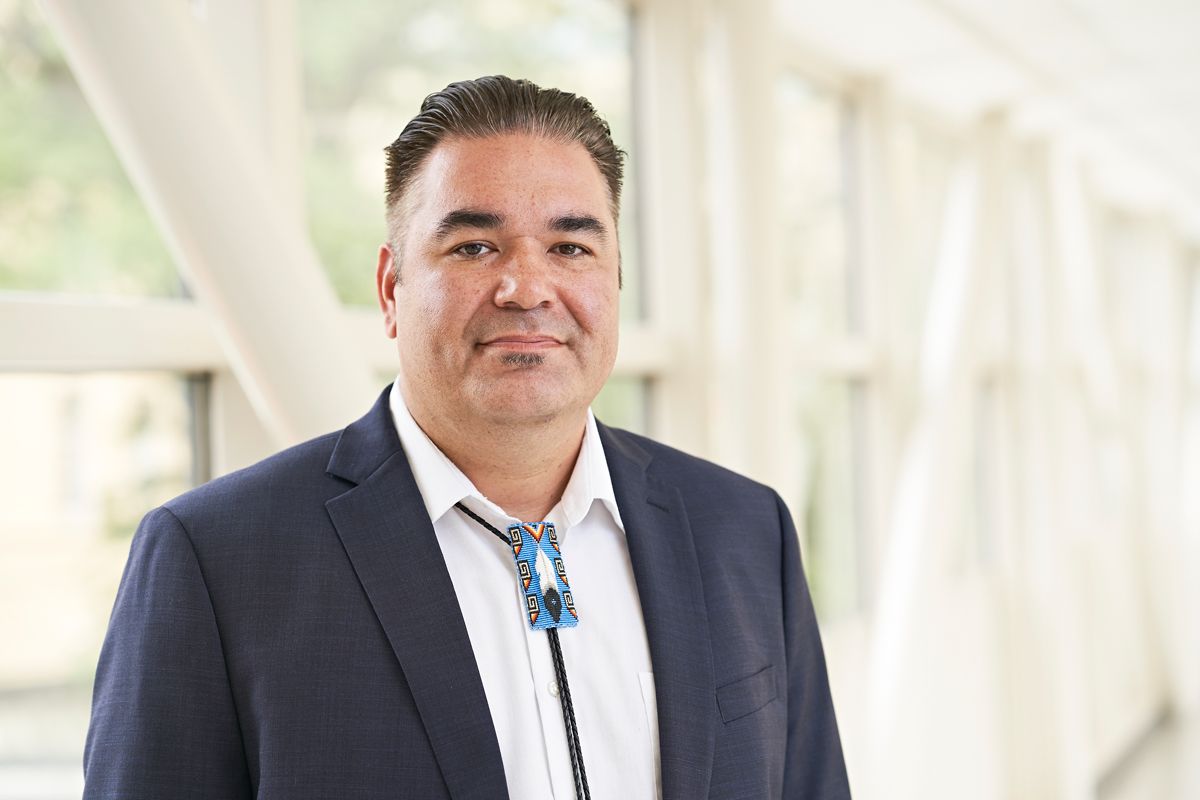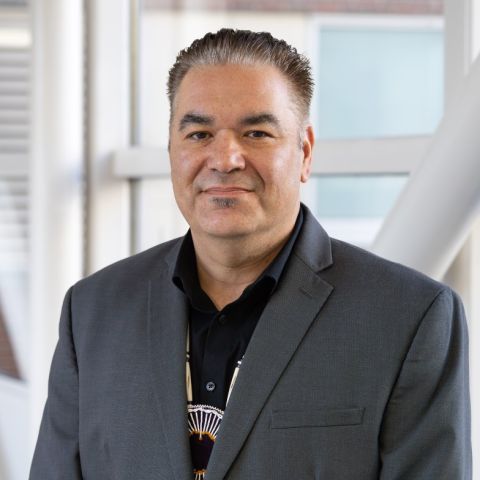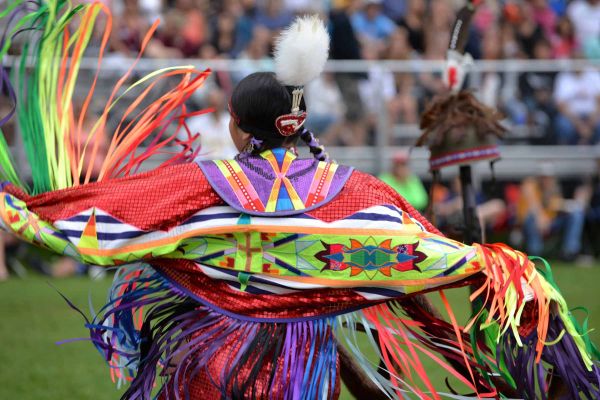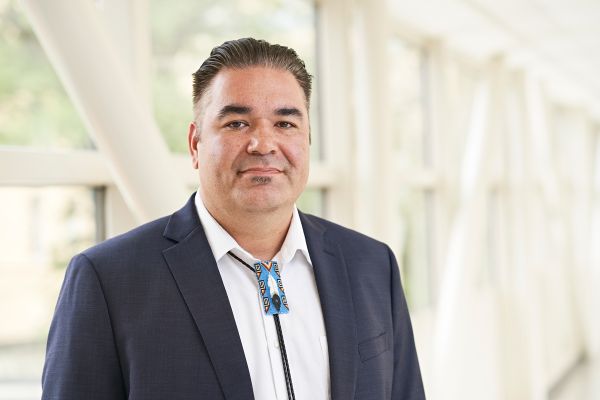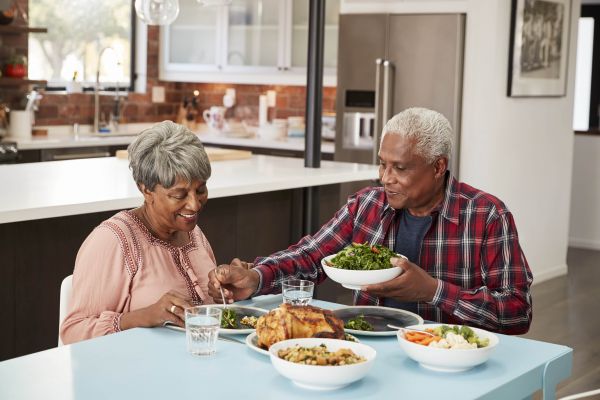Work and community — two things that most people care about deeply — rarely overlap as much as they do for Rodney Haring, PhD, MSW, Director of the Department of Indigenous Cancer Health) at Roswell Park Comprehensive Cancer Center. As an enrolled member of the Seneca Nation of Indians, Beaver Clan, every day he applies the traditions and values of the Seneca and Haudenosaunee (Iroquois) people to his work.
"We have this philosophy called ‘the seven generations principle,’ meaning that we need to be forward-thinking in our decision-making and consider how our actions today may impact the next seven generations — how we can make the future generations thrive, be successful and have a good mind," says Dr. Haring. "This and many other values have been part of my work throughout my life."
Dr. Haring knew from a young age that he wanted to focus on helping indigenous communities. "In terms of academics, initially my focus was on several different things, all related to our community, but I also had an interest in conservation and the environment, because I think we as humans have an important relationship with the environment. That's an important part of the Haudenosaunee way of life," he says.
"My interests started there, and then as I progressed through my education, I took an interest in psychology and social sciences during my undergraduate degrees. As I moved on into graduate school, I was really intrigued and learned a lot more about how the psychology of community worked, and that fell into the area of social work in graduate school."
After graduate school, Dr. Haring began his 15-year career as a social worker, working with indigenous communities on various health and disparities issues.
"Social work requires a wide skill set. You can work with individuals, families and larger communities. You can help develop policy or do research. You can be a professor, teaching in academia or business. There are a lot of things you can do with a social work degree," says Dr. Haring.
"But one thing that I did not know throughout my education and early career was that social work played into the things I was interested in, in terms of the impact you can have on communities — especially from a medical standpoint, with lifestyle intervention — by problem-solving and finding solutions for health concerns and promoting community health and wellness. So social work was a really strong backbone for the work I do today in cancer research and prevention."
While each of the 574 federally recognized tribes across the United States has its own distinct history and culture, indigenous populations overall share an increased risk of cancer and other diseases, including diabetes, heart disease and obesity, due to a combination of living conditions; tobacco, drug and alcohol use; poor diet; and environmental contaminations. Coupling this with a lack of trust in health and governmental organizations due to long-term discrimination against indigenous peoples in the U.S., disparities in cancer research and treatment for indigenous communities have continued to increase.
It’s a gap that Dr. Haring and colleagues are determined to close.
Roswell Park established the Department of Indigenous Cancer Health earlier this year. Led by Dr. Haring and supported by an intertribal Community Advisory Board and a staff that includes social workers and research coordinators, it's the first center of its kind in the Northeast focusing on reducing cancer's impact on indigenous communities across North America and beyond.
Indigenous Cancer Research at Roswell Park
Established in January 2020, read more about the Department of Indigenous Cancer Health.
"The Department of Indigenous Cancer Health is really a part of the ‘seven generations’ type of thinking,” says Dr. Haring. “Creating a collective to address these inequities and health disparities in cancer within our communities creates a sustainable healthy future for generations to come. And it isn't just the department working alone. It's the entire staff, departments and partners within Roswell Park and the initiatives that we put forward, the collective of our minds working together to make it a real success."
It has been rewarding to work in the community he was raised in, but Dr. Haring humbly acknowledges that the work he and his staff do is more significant than their own personal journeys.
"I think as indigenous students, one of our goals is to come back and contribute — whether it be working within our communities, consulting, doing research or working with our children, it's always tied back into our communities, and that's the way we're brought up.
"It is rewarding in that way, but I also keep in the back of my mind that it isn't really about my path and my journey. It's about this collection that we're creating of good minds — scientists and clinicians who will make a difference for generations to come.
“What we're working on today is indigenous science that our communities may benefit from moving forward. We're creating knowledge in regard to research, in regard to clinical care, in regard to all these different things across the cancer care continuum. That is really the sustainable legacy that I believe our center will have."
